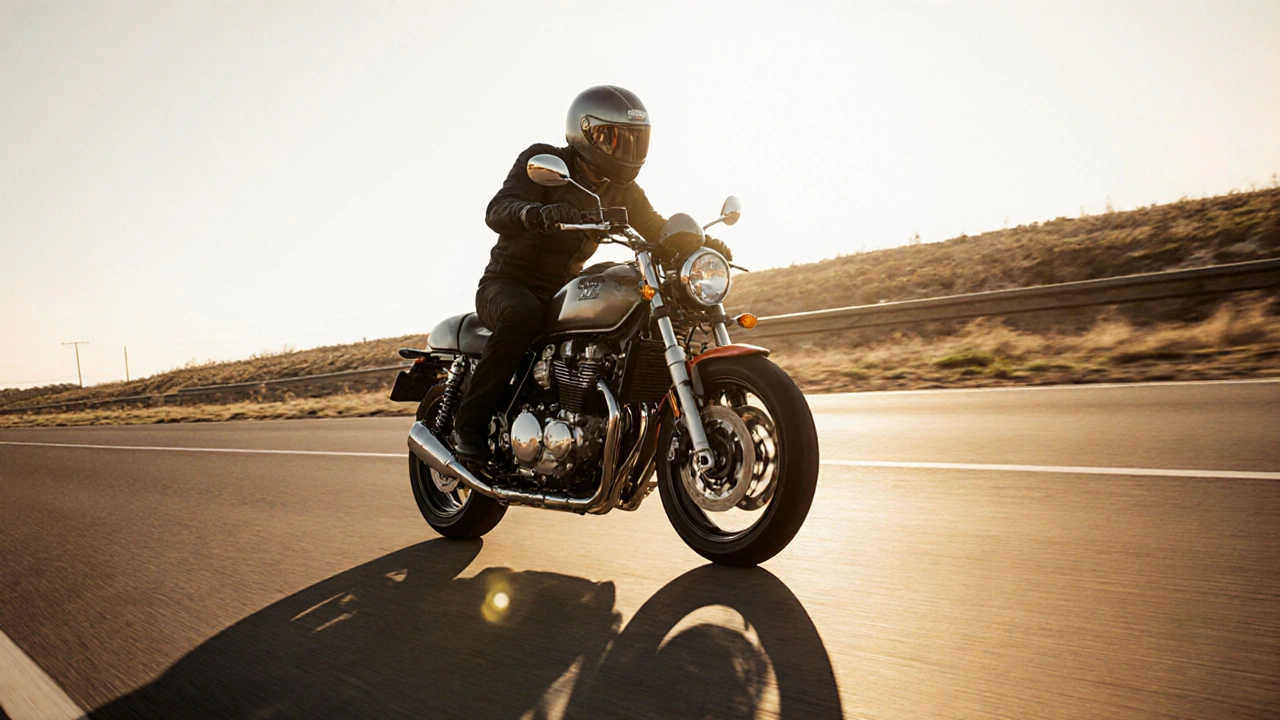When you ride a motorcycle, motorcycle braking, the process of slowing or stopping a motorcycle using friction-based systems. Also known as bike stopping, it’s not just about pulling the lever—it’s about control, timing, and knowing when your gear is about to fail. Unlike cars, motorcycles rely on two separate brake systems—one for the front wheel, one for the rear—and how you use them makes all the difference in a panic stop. Most riders don’t realize that 70% of stopping power comes from the front brake, yet many still rely too much on the rear, especially in wet conditions. That’s why understanding how your brakes actually work isn’t optional—it’s life-saving.
Behind every good stop are three key parts: brake pads, the friction material that clamps against the rotor to slow the wheel, brake fluid, the hydraulic liquid that transfers force from your lever to the calipers, and ABS motorcycle, a system that prevents wheel lockup during hard braking, especially on slippery surfaces. Brake pads wear down over time, and when they get thin, you’ll hear a screech or feel a soft lever. Brake fluid absorbs moisture, which lowers its boiling point—meaning on a long downhill, your brakes can fade without warning. ABS isn’t a luxury anymore; it’s standard on most new bikes because it reduces crashes by up to 37%, according to real-world data from motorcycle safety studies.
Most riders ignore brake maintenance until something goes wrong. But checking your pads every 2,000 miles, flushing the fluid every two years, and inspecting rotors for warping can prevent a dangerous moment on the road. You don’t need a garage to do it—just a screwdriver, some gloves, and a little time. And if you ride in the rain or carry heavy loads, you’re putting extra stress on your brakes. That means you need to check them more often. The same posts in this collection cover how to spot early signs of brake failure, how to choose the right pads for your riding style, and why some riders swear by stainless steel brake lines. You’ll also find real advice on what happens when ABS fails, how to test your brakes before a trip, and what to do if your lever feels spongy.
Motorcycle braking isn’t just mechanics—it’s instinct. The better you understand it, the more confidence you’ll have when you need to stop fast. Whether you’re commuting through traffic, carving twisties, or hauling gear on a weekend ride, your brakes are your most important safety system. Don’t wait for a near-miss to learn what they can do—or what they can’t.
Posted by
Liana Harrow
13 Comments

Learn how to stop faster and safer on a motorcycle with threshold braking and ABS techniques. Master the skills that keep you upright when you need to brake hard.
read more